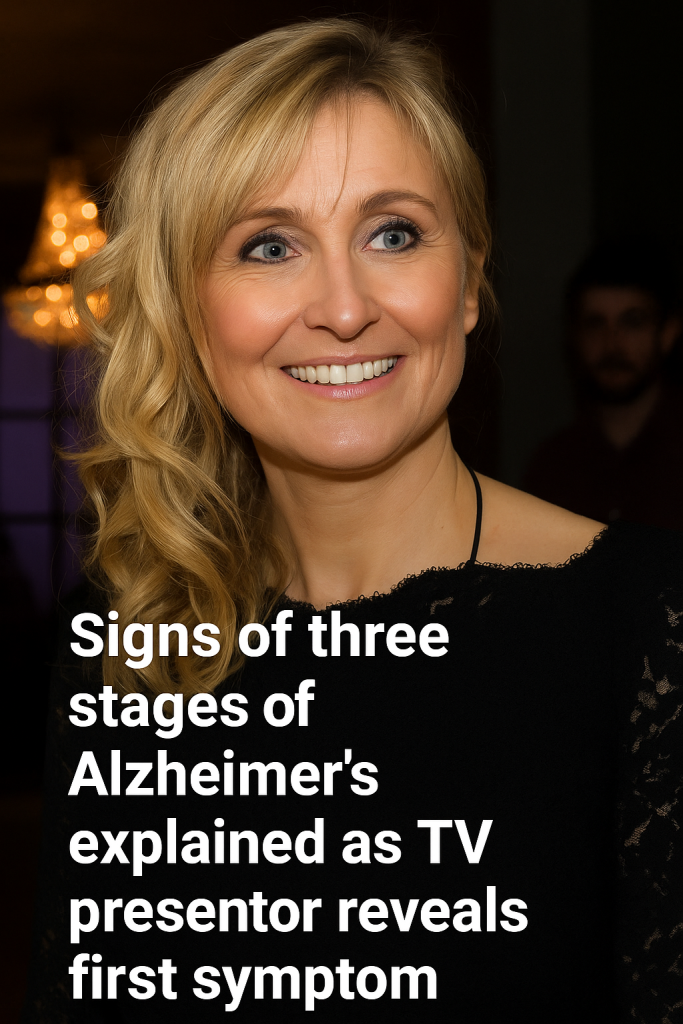Alzheimer’s disease is a deeply challenging condition, often creeping in quietly with symptoms mistaken for everyday forgetfulness or fatigue. Recently, a well-known television presenter bravely opened up about her personal journey recognizing the early warning signs of Alzheimer’s, shedding light on the subtle, often overlooked symptoms.
Initially, the presenter thought the changes she noticed in herself were harmless and unrelated. “I thought it was just stress, maybe my busy schedule catching up with me,” she revealed. However, as small moments of confusion compounded, she sought medical advice—only to learn that these were the first symptoms of Alzheimer’s disease.
Her story highlights a critical message: Alzheimer’s does not always announce itself with dramatic memory loss or disorientation. The presenter described the first stage of her condition where her cognitive changes seemed mild, leading to denial or misinterpretation. Common early signs include subtle memory lapses, trouble finding words, disorientation with time, or difficulty completing familiar tasks. Many dismiss these changes as normal aging or stress-related, which can delay diagnosis and early intervention.
In her candid explanation, the presenter broke down the three stages of Alzheimer’s, offering viewers clarity on what to watch for:
- Stage 1: Early Symptoms — Minor memory challenges and difficulty recalling recent events. Individuals might forget appointments or lose items but still function independently.
- Stage 2: Moderate Progression — Increased confusion and memory loss affect daily activities. People may struggle with personal hygiene, household chores, and recognizing familiar faces or places.
- Stage 3: Severe Stage — Significant cognitive and physical decline, loss of independent function, and requiring full-time care.
By sharing her discovery of the “first symptom” she noticed, the presenter hopes to raise awareness that Alzheimer’s signs often start subtly. She encourages anyone experiencing unusual cognitive changes or noticing similar signs in loved ones to seek professional assessment early.
Experts agree early diagnosis is crucial. While Alzheimer’s currently has no cure, early intervention through medication, lifestyle changes, and support programs can slow progression and improve quality of life. Public understanding remains key in recognizing symptoms before they become severe.
Alzheimer’s remains one of the most daunting neurodegenerative diseases worldwide, affecting millions and putting immense emotional and financial strain on families. Stories like this presenter’s humanize the reality of the condition and help break down stigma and misconceptions.
Her heartfelt message resonates broadly: “If I had known that particular symptom meant something more serious, I would’ve acted sooner. Please don’t ignore the little things your mind is telling you.”
This personal testimony is a reminder that recognizing the early signs of Alzheimer’s—no matter how insignificant they may seem—is essential to slowing progression and maintaining cherished memories for longer.



